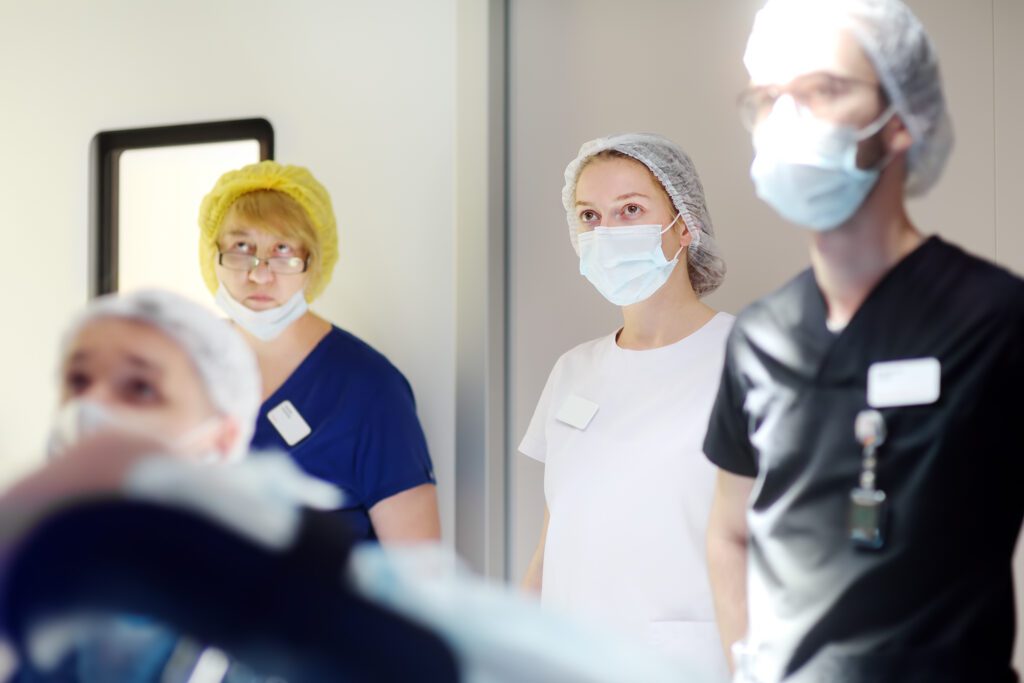How Long Should You Study for Step 2 CK?
- by
- Jun 20, 2023
- Reviewed by: Amy Rontal, MD

That drive home after the USMLE Step 1 was a wonderful cocktail of emotions. I felt light, free, breezy, and unburdened. There was a theme of, “Thank goodness, I never have to go through this again.” While that was true to some extent, exam prepping was far from over. While there was never another Step 1 dedicated study period, or 7-hour exam covering the Krebs cycle and histology stains, there were shelf exams and then, of course, USMLE Step 2 CK.
So much of USMLE Step 2 CK focuses on clinical knowledge and students generally take this exam at the conclusion of their clinical rotations during their M3 year. I suspect that, in all likelihood, your experience will be similar to mine. As you recover from the mental exhaustion of USMLE Step 1, and tirelessly balance your clinical rotation performance with the shelf exam studying, the USMLE Step 2 CK exam will slowly creep up on you. If you start to feel some anxiety, don’t worry, you’re not the first person this has happened to! And take heart: we’re here to help you out with this latest round of exam prep.
In this post, we’ll answer a few common questions about preparing for Step 2, so you’ll be ready for anything that comes at you on exam day. Let’s dive in so we can get your preparation on the right track!
 Still looking for a Step 2 Qbank? Meet the new combined Step 2 & Shelf Exams Qbank with 5,000 practice questions that most closely match what you’ll see on your USMLE Step 2 and all of your shelf exams. Get started with 7-day FREE access!
Still looking for a Step 2 Qbank? Meet the new combined Step 2 & Shelf Exams Qbank with 5,000 practice questions that most closely match what you’ll see on your USMLE Step 2 and all of your shelf exams. Get started with 7-day FREE access!
Why is it important to adequately study for Step 2 CK?
My professor used to always say, “one month for Step 1, one week for Step 2, and one day for Step 3.” This would NOT be how I would approach any of these exams. This language is from a different time, and things are very different today. When Step 1 provided a three-digit score, it was the primary data point used to filter and screen applications for residency. At that time, Step 2 scores were important as supplementary parts of the application. They were kind of like a second chance to impress if your Step 1 score was lower than you wanted, but the focus was on your Step 1 score.
Now, Step 1 is pass/fail. This means it’s no longer a filter/screen, and Step 2 is no longer a “second chance.” Step 2 CK scores are now the primary data point used to filter and screen residency applicants.
While being an MS3 is much of a blur with clinical rotations and shelf exams, it’s important to realize this time can also be used to prepare for Step 2, especially during the later or lighter rotations. As you create a study plan, understand that this exam is an important part of your application, and you’ll need to think ahead in order to give yourself enough time to identify and fill gaps in your knowledge.
How long should you study for Step 2 CK?
Hmm, definitely longer than 1 week! Okay, but how long, exactly? I like to break down Step 2 prep into three phases:
- Phase 1: This was your preclinical time, and all of the hard work you put into a strong Step 1 performance. It’s worth noting that strong foundations for Step 1 carry forward to Step 2 CK.
- Phase 2: This is when you are on your clinical rotations. It includes the studying you do for your 3rd-year clinical rotations. and any specific Step 2 prep you’re able to squeeze into those busy weeks.
- Phase 3: The beloved dedicated study period is back for round 2. Phase 3 usually begins right after your clinical rotations end and extends until you sit down to take the USMLE Step 2 CK exam. This phase of studying is highly variable and highly individualized. Students generally take 1-4 weeks of dedicated study time, with most students taking 2-3 weeks.
During Phase 2, your primary focus will be clinical performance and a strong shelf exam score. Those efforts will also help bring about a successful Step 2 experience. Specifically for Step 2 prep, I would recommend that you dedicate an hour during each week of your clinical rotations to reviewing material from prior rotations, i.e., doing a block of Qbank questions that includes all of the rotations you have covered. This will really help keep material fresh as your third year continues.
A year is a long time, and it’s easy to forget some things along the way. My first rotation was pediatrics, and I am really glad I kept some of the pediatric content fresh with weekly reviews, as it made my dedicated study period so much more manageable. The vaccine schedules, congenital defects, and metabolic disorders are so easy to forget.
How can you study effectively for Step 2 CK?
The principles of Step 1 prep apply to Step 2 prep. Practice exams and practice questions are your best friend. Before deciding how long you will study for Step 2, I recommend taking a practice exam at the start of your dedicated period to establish a baseline of where you’re at. There’s not enough time to review all of the content on Step 2 CK during your dedicated study period, and that’s OK! In all likelihood, you don’t have to review all of the content.
Once your baseline is set, review that practice exam to assess your strengths and weaknesses. Consider your shelf exams—were any of them outliers, low or high? Also, consider the order of your rotations. What were your first two? Are you rusty on pediatrics like I was? Those questions can help prioritize the topics you need to tackle during your dedicated study time.
After getting a baseline, schedule additional Step 2 CK practice tests and plan to take them in an exam-like environment. Aim to complete 80 questions per day of a Step 2 Qbank on mixed and timed modes. Review those questions with the goal of finding one takeaway per question (it doesn’t need to be the educational objective, focus on what YOU learned).
Those are the basics of a study day and the general study plan. The rest of how you spend your time is up to you. Consider which topics you had trouble with, any poor shelf performances, or low subject scores on your practice exams. I would pick one or two resources (like the textbook Master the Boards: USMLE Step 2 CK or Boards and Beyond: Step 2) and review content that is high on your priority list.
Keeping track of those topics and how you will attack them can be daunting. Blueprint’s Med School Study Planner is an excellent tool that can be used to organize tasks and it only takes a few minutes to use! It’s highly adaptable to your needs and has hundreds of resources already indexed, such as the Boards and Beyond videos. Best of all, it’s free! To gain access, just click the link below:
Thousands of medical students use Blueprint’s Med School Study Planner to save hours of planning time, see exactly what to do each day, and ace their med school exams. Get unlimited FREE access today!
In Conclusion…
Step 2 CK has always been a beast of an exam, but for years it was overlooked because the USMLE Step 1 was considered more important. However, now that Step 1 is a pass/fail exam, Step 2 CK is front and center on our residency applications.
The keys to success on Step 2 CK include understanding how important the test is, setting aside enough time to prepare for the test, and studying for the test in an effective way. Good planning, an early start, and strong shelf exam efforts all help! My final point is that your third year of medical school and Step 2 CK are stressful milestones. I urge you to take care of yourself and keep an eye out for your colleagues. The more you care for yourself, the more you will be able to care for others, and the more energy you can put towards your Step 2 prep!
About the Author
I attended Purdue University for undergrad and completed a Bachelor of Science in Chemical Engineering with a Pre-medical focus and then continued my journey to Indiana University for Medical School. I am currently in my fourth and final year of medical school with the intention of pursuing a career in academic general surgery. Over this time, I have worked as a tutor for over 10 years, including several years working as a tutor in the department of engineering and now tutoring medical school exams exclusively with Blueprint. I am currently interested in either vascular or trauma surgery but as I prepare for general surgery residency, I have an open mind. As a fun fact, I have worked as a personal trainer for 5+ years and currently own and operate a personal training business.










